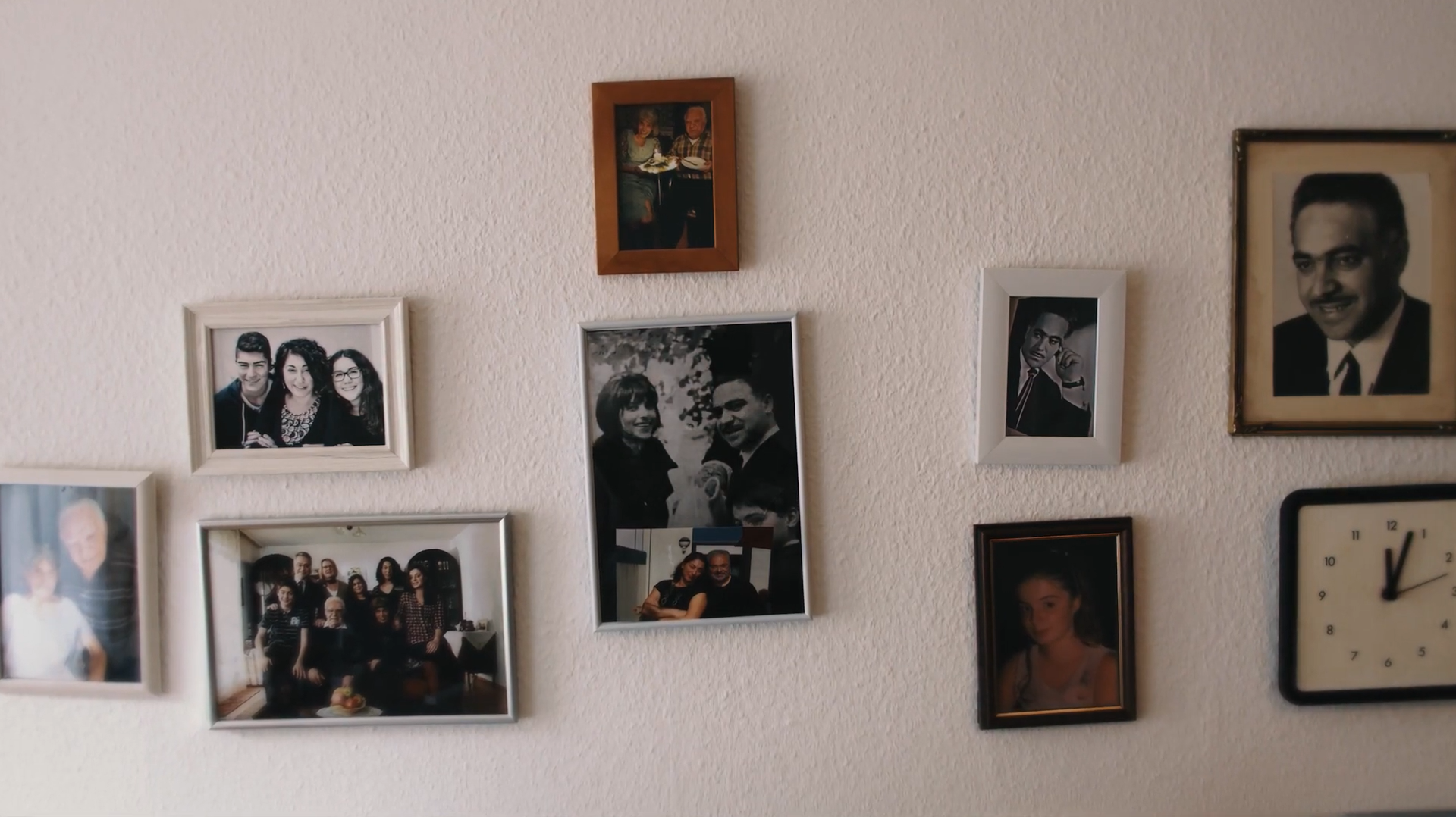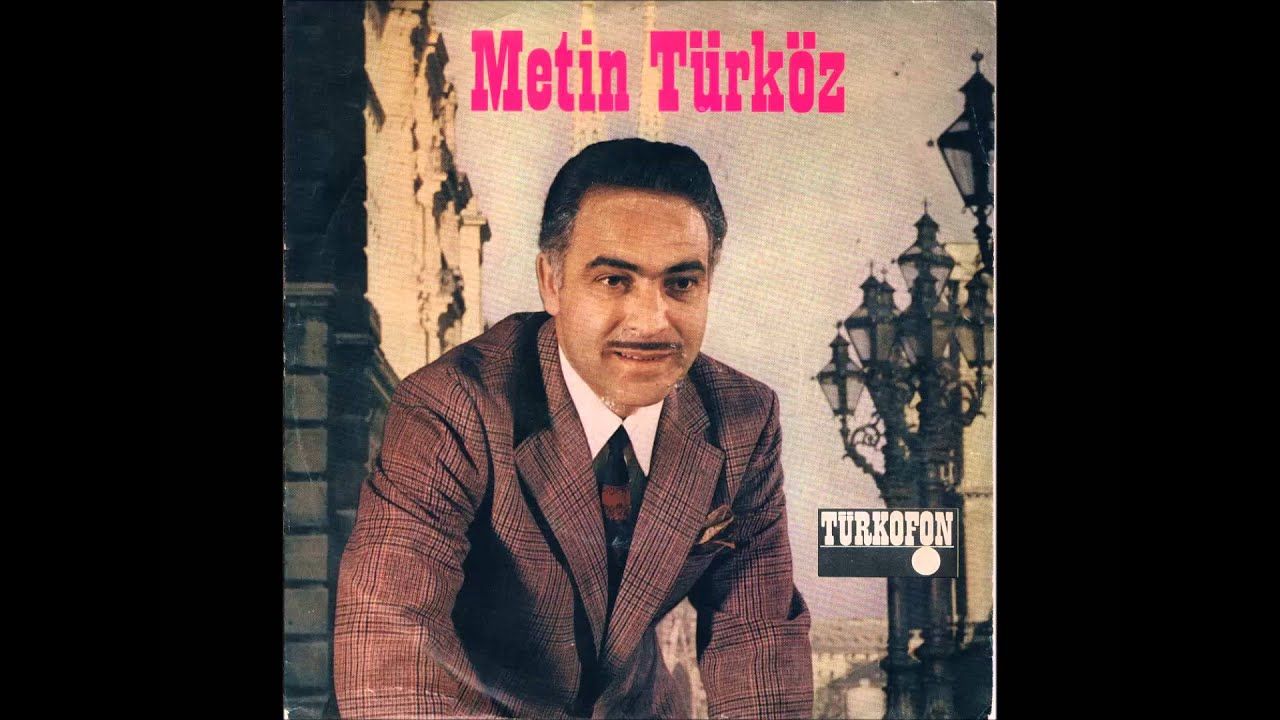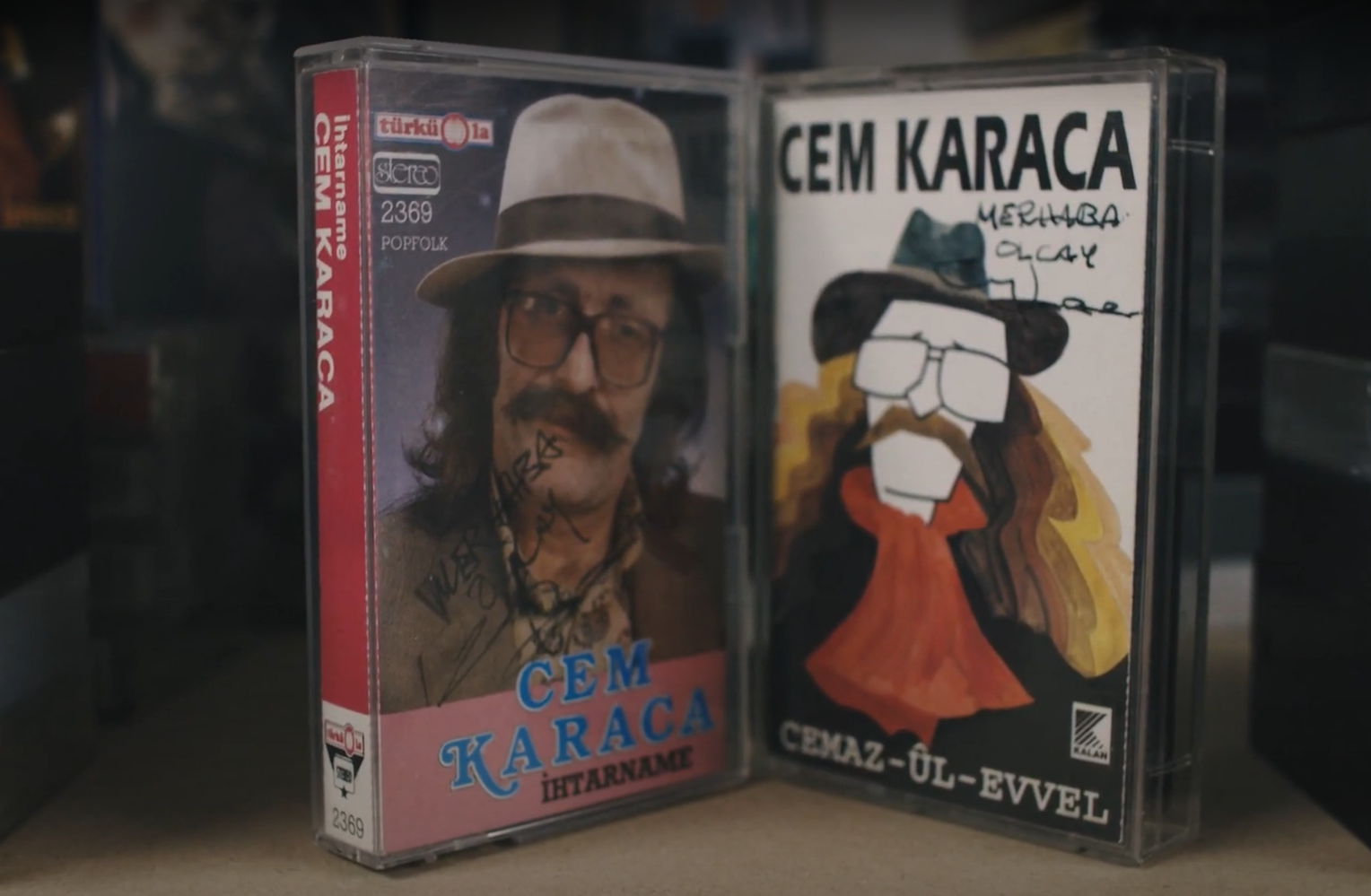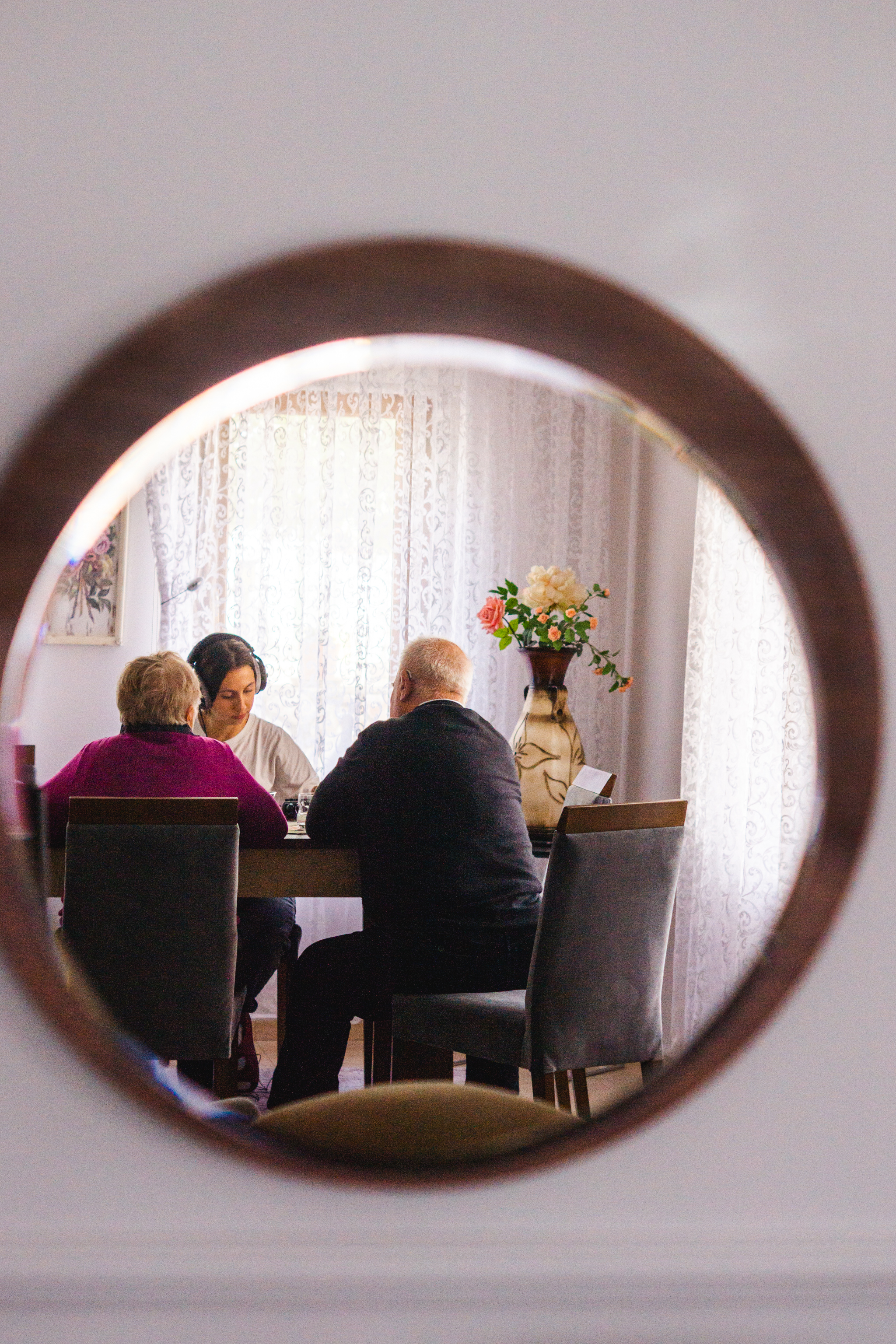en
- de
- en
FROM FEATHER BEDS TO STRAW - THE LONGING BEGINS
The first guest workers from Turkey came to Germany in 1961. With them began an impressive history of German-Turkish music that still touches many people today. Already in the first years after their arrival, many guest workers gave musical expression to the feeling of losing their homeland; for example, in the so-called Gurbet Türküleri ("Folk Songs from a foreign land"), which emerged as a special genre of folk music. At first, these folk songs were only passed on orally and musically accompanied by the saz, a traditional long-necked lute. It was not until the 1970s that these songs were also recorded and distributed on recordings.
But who were the first voices of the Turkish music scene in Germany? What was the reality of their lives like? What did they sing about, what did they address in their songs? And how was their music disseminated long before the first musicians of Turkish origin were noticed by major record companies in Western Europe?
SOUNDS FROM THE SOUL - A SHORT FILM BY MIRZA ODABAŞI
Directed by the German-Turkish film director, songwriter and photographer Mirza Odabaşı, the moving short film "Sounds from the Soul - Music between Almanya and Germany" was made for our special exhibition "Gurbet şarkıları - Songs from a Foreign Land ", which traces the paths of Turkish music to the so-called "foreign countries" in Germany. In the film, well-known musicians such as Aziza A., the first female rapper of Turkish origin in Germany, and the representative of a famous German-Turkish music label talk about their musical biographies and their personal memories. The music of the people portrayed in the film has touched many people deeply. It became a projection screen for longings and dreams, but also for worries and fears about the racism they experienced - from the 60s to today.
THE BEGINNINGS - "GURBET TÜRKÜLERI", FOLK SONGS FROM A FOREIGN LAND
Metin Türköz
Metin Türköz, born in 1937 in Kayseri (Turkey), is a German-Turkish musician and folk singer who came to Cologne as a guest worker in 1962, where he still lives today. With his instrument (Bağlama) and his music, he became the voice of many guest workers. In his 'Gurbet Türküleri' (Folk Songs from a foreign land), he raised awareness, among other things, of the grievances of the first period in Germany and addressed above all the Turkish public.
Metin Türköz
A GERMANY SONG
“Saat 6 dır şimdi Köln’e geldik dediler.
Altı altı hepımızı koğuşlara verdiler.
Tüy yerine altıma ot yatağı serdiler.
Banyo tuvalet fabrika da dediler.
Alamanya, alamanya umduğun şeyi bulaman ya.”
in English:
"They said it's 6 o'clock, we've arrived in Cologne.
In groups of six they took us to barracks.
Instead of a feather bed, they spread straw under us.
They said the bathroom and toilet are in the factory.
Germany, Germany, you won't find what you hoped for here."
GURBET TÜRKÜLERI ─ FOLK SONGS FROM A FOREIGN LAND
Metin Türköz, who is also portrayed in "Sounds from the Soul", was one of the first guest worker voices in Germany. In the video, a Turkish-language report in WDR Cosmo, he talks about his musical career.
Original footage from his time as a guest worker can be seen. Embark on a journey back in time to the 60s and 70s in Germany, which were characterised by longing and hope.
STARS OF THE 1960S & 1970S
YÜKSEL ÖZKASAP - THE NIGHTINGALE OF COLOGNE
Yüksel Özkasap, also known as Köln'ün Bülbülü (Nightingale of Cologne), is one of the best-known musicians of the first generation of guest workers. She came to Germany in 1966 as a young girl, intending to stay only a few months. But her passion for music was discovered very early by the Cologne record company Türküola.
GURBET TÜRKÜLERI - FOLK SONGS FROM A FOREIGN LAND
She became a recording star in the 1970s with her Gurbet Türküleri (Folk Songs from a Foreign Land). Özkasap's music became a comfort for many guest workers who lived far away from their families in foreign countries.
NEŞET ERTAŞ - AN "AŞIK" WITH A CASSETTE SHOP
Neşet Ertaş is considered one of the most famous Turkish Aşık (folk singer) of the post-war period. Born in 1938 in Kırşehir in central Turkey, the singer composed folk songs as a young man. Ertaş spent around 20 years of his life in Germany.
Already as a young man, Ertaş composed folk songs and pursued his musical passion even after his arrival in Germany at the end of the 1970s - when he lost his job after a long illness in Turkey.
TURKISH BAZAAR - THE LATEST CASSETTES FROM TURKEY
Neşet Ertaş performed at music events in Germany and ran his own music shop in Berlin on Bülowstraße until the Wende. Here, among other things, he sold the latest cassettes from Turkey and gave saz lessons.
YUNUS-EMRE GÜNDOĞDU - PERSONAL MEMORIES OF A CASSETTE SHOP IN KREUZBERG
Yunus-Emre Gündoğdu was born in 1992 in Berlin-Neukölln. His family came to Berlin in 1968 as part of the recruitment agreement and lived at the Schlesisches Tor on Cuvrystraße near the Berlin Wall. In 1972, they moved to Schöneberg as one of the first Turkish families. There he lived with his parents, uncle and grandmother in a shared 2.5-room flat. Yunus-Emre Gündoğdu studied English and political science to become a teacher and now works as an anti-violence and competence trainer at a support organisation in Berlin-Kreuzberg.
WHAT WOULD OUR LIVES BE WITHOUT MUSIC? - VOICES AND STORIES ABOUT MUSIC AND IDENTITY
AYŞEN HARTINGS - HER WAY TO GERMANY
Ayşen Hartings is 77 years old and came to Germany from Gaziantep in the 1960s as a fully trained teacher under the recruitment agreement. Initially, she worked as a seamstress in the Sauerland region. She learned the German language within her first year and managed to catch up with her husband from Turkey. A short time later, she moved to Berlin and subsequently lived in Hamburg. After separating from her husband, who moved back to Turkey, she stayed in Germany. She now lives in Frankfurt am Main and sings in a choir for Turkish art music.
AYŞEN HARTINGS - THE IN-DEPTH PODCAST
Listen to the detailed podcast with Ayşen Hartings by Maria Lotto here. The podcasts were created in a cooperation project on the exhibition with Goethe University Frankfurt. In the podcasts, master's students of musicology go in search of personal memories of people of Turkish origin about music and what it has meant to them in different phases of their lives.
SAIT SEZGIN - CONCERTS FROM THE HOMELAND
Sait Sezgin, born in 1944 in a village near Trabzon, moved to Germany as a guest worker in 1970 at the age of 26. He worked in various factories and was very active politically. He was active in the trade union and campaigned for the rights of guest workers. He was also interested in the politics of his home village and took part in the social life of both his old and new home. He did various jobs throughout his life and is now a pensioner in Kreuzberg, where he has lived with his wife for over 30 years.
SAIT SEZGIN - HOW IMPORTANT IS THE LANGUAGE OF MUSIC?
FATMA SEZGIN - CELEBRATING WITH DESSERT AND MUSIC
Fatma Sezgin, born in 1952 in a village near Trabzon, moved to Germany in 1971 as a guest worker. She worked in various factories and later opened a Turkish restaurant with friends. In 1991, she finally moved to Berlin to open a stand-up café near Schlesisches Tor with her husband and a relative. Today she is a pensioner and lives with her husband in Kreuzberg. In her district, she is involved in the mosque with her friends and accompanies others in the neighbourhood to the doctor because of her good knowledge of German, which she acquired herself.
FATMA SEZGIN - ARRIVAL AND CHALLENGES IN A FOREIGN COUNTRY
MORE STORIES ABOUT GURBET ŞARKILARI - SONGS FROM A FOREIGN LAND
FROM THE "FOREIGN" INTO THE MAINSTREAM
The preoccupation with one's own identity is becoming increasingly important in many migrant biographies and is reflected in many songs. At the same time, it can be observed that the musicians increasingly choose the German language to express their thoughts and feelings.
BETWEEN RACISM AND FEAR OF RELEGATION - THE NEW TURKS ARE COMING!
The dilemma of being caught between two supposedly opposing cultural identities becomes more and more the subject of Gurbet Şarkıları (Songs from a foreign land) in the 80s.
Podcasts as a place of remembrance
Funded by KULTUR.GEMEINSCHAFTEN, "Erinnerungenschaften - der Podcast für türkisch-deutsches Erinnern" preserves post-migrant voices and allows people to speak who have experienced and shaped our common history.






